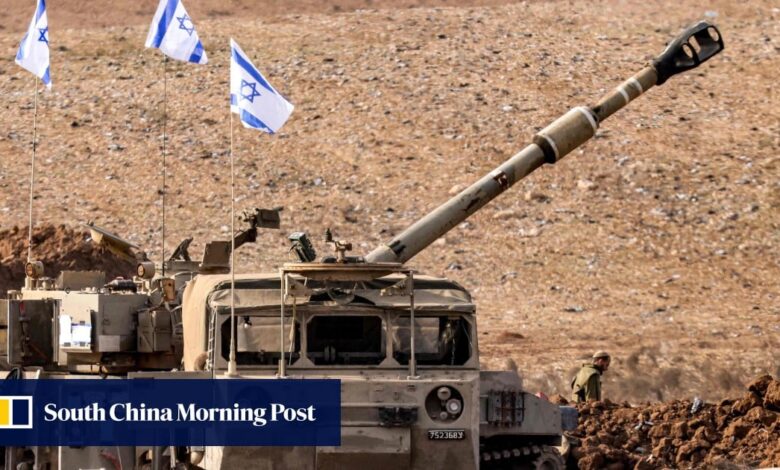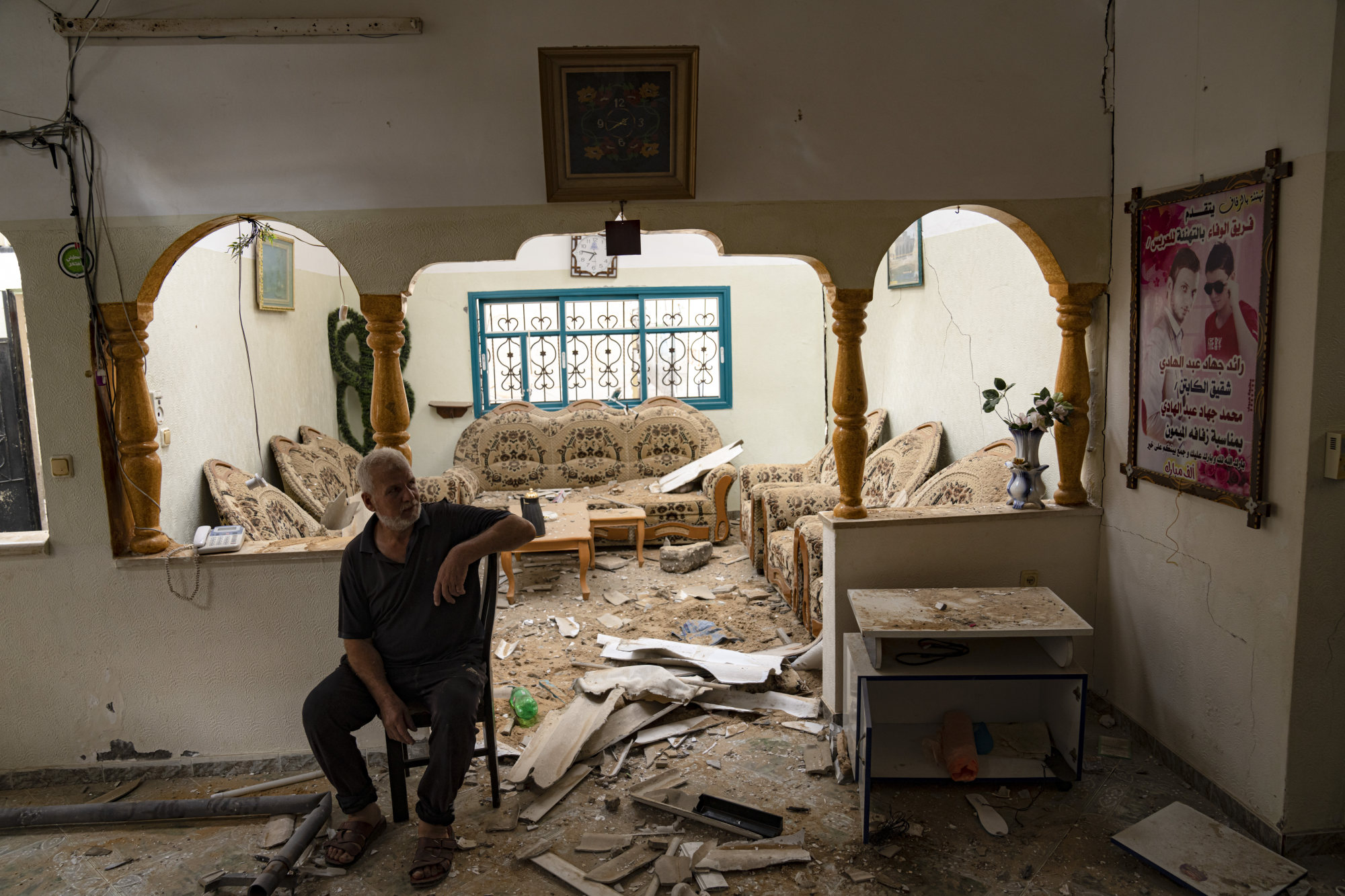Israel stepping up ground operations in Gaza Strip

Israeli air and ground forces are stepping up operations in the Gaza Strip, Israel’s chief military spokesman said on Friday, amid reports of heavy bombing of the besieged enclave.
Internet and mobile phone services were cut off in the area, a local telecoms firm and the Red Crescent said.
“In the last hours, we intensified the attacks in Gaza,” Rear Admiral Daniel Hagari told a televised news briefing, raising expectations that the long-anticipated ground invasion of Gaza may be beginning.
He said the air force was conducting extensive strikes on tunnels and other infrastructure.
“In addition to the attacks carried out in the last few days, ground forces are expanding their operations tonight,” he said.
Israeli forces have massed outside Gaza, where Israel has been conducting an intense campaign of aerial bombardment since a deadly October 7 attack on Israel by the Islamist movement Hamas.
Earlier on Friday, Palestinian mobile phone service provider Jawwal said that services including phone and internet had been cut by heavy bombardment.
A statement from the Palestine Red Crescent Society said it had completely lost contact with its operations room in Gaza and all its teams operating on the ground.
‘Viet Cong times 10’: underground warfare awaits Israeli troops in Gaza
‘Viet Cong times 10’: underground warfare awaits Israeli troops in Gaza
Israel has said has been preparing a ground invasion, but has been urged by the US and Arab countries to delay an operation that would multiply the number of civilian casualties in the densely populated coastal strip and might ignite a wider conflict.
A ground invasion would markedly escalates Israel’s campaign of retribution for the deadly Hamas attack of October 7.
Such an operation would exacerbate what aid groups call a humanitarian crisis in Gaza following days of aerial bombardment that Hamas health authorities say have killed more than 7,000 Palestinians.
That followed a shock attack by hundreds of Hamas gunmen, who rampaged through Israeli communities close to the Gaza Strip, killing 1,400 people and dragging more than 200 into captivity.

Concerns about a risk of a wider Middle East conflict have risen in recent days with the US dispatching more military assets to the region as Israel pummelled targets in Gaza and Hamas supporters in Lebanon and Syria.
Israeli leaders have vowed to wipe out Hamas, the Islamist movement that has run Gaza since 2007, and kill the leaders and planners of the October 7 assault, undeterred by pleas from humanitarian agencies to spare the civilian population.
Much of the infrastructure of Gaza, which has been living under blockade by Israel and Egypt since 2007, has been shattered by the Israeli bombing.
Power has been cut for days, crippling treatment facilities and depriving Gazans of fresh water, while half of its housing stock has been damaged and 20,000 residential units destroyed or rendered uninhabitable, according to the Hamas media office.
US strikes Iran-linked facilities in Syria after attacks on US troops
US strikes Iran-linked facilities in Syria after attacks on US troops
With Israel keeping up daily bombardments that laid waste to swathes of the densely populated strip, Palestinians said they received renewed Israeli military warnings to move from Gaza’s north to the south to avoid the deadliest theatre of the war.
Gazans say making the journey south remains highly risky amid air strikes and that southern areas have also been bombed.
Many families have refused to leave their homes, fearing a repeat of the experience of previous wars with Israel when Palestinians who left their homes and land were never able to return.
Strategically, Gaza operations may be complicated by the need to protect Israel’s northern border where Israeli forces have been engaged in days of sporadic cross-border fire into southern Lebanon and Syria.
Israel and its ally the United States have warned the Iranian-backed Hezbollah militant group in Lebanon not to intervene and Washington has dispatched two aircraft carriers to the region to reinforce the message.
Hamas, backed by Israel’s main regional enemy Iran, has had years to prepare its defences. Over the years, Israel has uncovered a sophisticated network of tunnels and Hamas has fired missiles at Israel since launching the October 7 attack.
Hundreds of fighters and many commanders have been killed, the Israeli military says, but those who remain sheltered in the tunnels will have a ruined urban landscape to use as cover when the battle opens.
Now, in addition to potentially heavy casualties among their own troops, Israel’s leaders face the dilemma of what to do about the hostages, an issue the military says is being handled at the highest levels of government.





